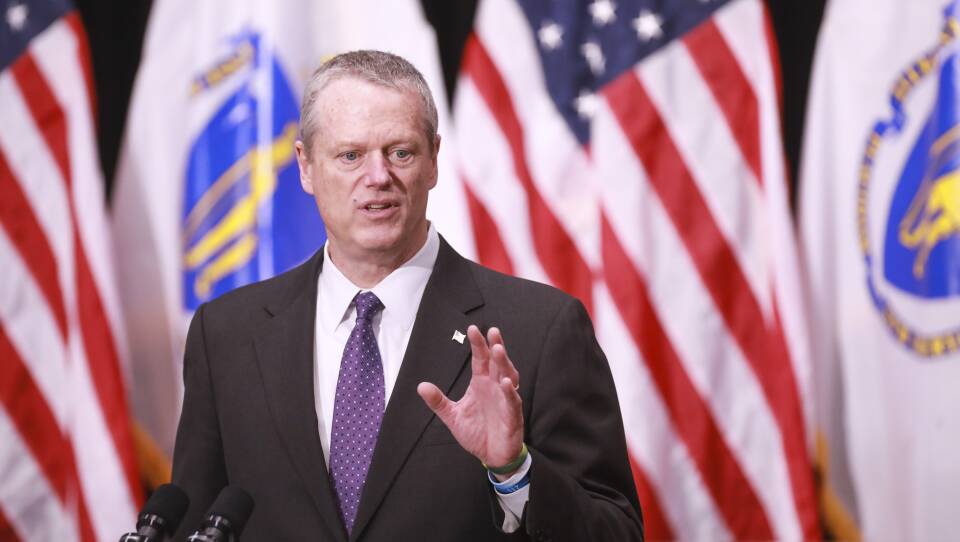It will be a summer full of "acceleration academies," tutoring, math instruction, and community college coursework for Massachusetts students under a $70 million grant plan rolled out by state officials Friday.
The state grants to schools are an effort to address student learning loss brought on by the pandemic. In some cities and towns, schools are reopening after having been closed for a year or more to in-person learning and many of their families have struggled with the deaths of loved ones or the loss of regular employment. Gov. Charlie Baker acknowledged those difficulties and how they affected communites unevenly at a press conference in Canton on Friday.
"We have an opportunity here to make up for lost ground," Baker said. "Level the playing field a little bit."
A centerpiece of the grant funding will be multi-year "acceleration academies." That includes Early Literacy Academies for incoming kindergarteners as well as rising first and second graders. Math Acceleration Academies will be deployed for rising third and fourth graders as well as eight and tenth graders. The academies will offer small classes with longer blocks of uninterrupted learning. Districts will identify students who qualify to attend, but the state will cap participation at 50,000 students a year statewide. Officials said details about how students will be selected will be released shortly.
Districts may also apply to participate in a matching grant program for schools that offer 4-6 week in-person academic and recreational programs this summer. The funding could be used to enhance or expand existing (or planned) summer programs by offering mental health services for students. It could also pay for additonal supports to benefit special needs students or English language learners.
It will take years to recoup what has been lost, state Education Secretary James Peyser said.
"We have to sustain our focus at the state and local level to accelerate students' learning," Peyser said, "and address the lingering social and emotional issues Covid has caused."
This year's graduating seniors will be invited to particpate in a new Summer Acceleration to College that will give students the chance to take English and Math courses for free at 14 participating community colleges.
The state, in conjunction with community organizations, will also fund programs to help the very youngest students who have had limited opportunites for in-person learning. Aimed at children who may have deferred preschool or kindergarten, the new Summer Step Up program is designed to help re-engage those children before they return to school in the fall. The state will award $10 million in grants toward those programs.
The funding is also in addition to an expected $5 billion in federal funds to help schools and students recover from the pandemic over the next few years.
Kevin Murray, executive director of the non-profit Massachusetts Advocates for Children, applauded the state’s efforts at putting resources toward much-needed summer programming. He said he would like to see the emphasis on academics better balanced with programming that offers social and emotional support to the kids who have been struggling. Many are traumatized because of a family member’s death or job losses related to COVID-19.
“In Boston, there are thousands of children who are completely disconnected from the [school] system,” Murray said. “What happens to those kids now?”
The state will also put two programs out for bid among vendors. One is a new K-8 Math Acceleration program to help teachers learn skills to help their students, and the second is the Biggest Winner Math Challenge, a program entering its second year.
Unveiling the funding plan Friday at a middle school in Canton, Baker noted how refreshing it felt to see children playing at recess.
"They really haven't been able to do that for a very long time," Baker said. "One of the things I like about what we're doing is it brings this notion that recreational activity needs to be part of this."
Three million dollars of the grant funding will be made available to community nonprofits offering activities that combine learning and recreation. The state cited the work of Boston Afterschool & Beyond, a group that already works with Boston students and calls the city's parks, the Blue Hills, and the Harbor Islands its classroom.





